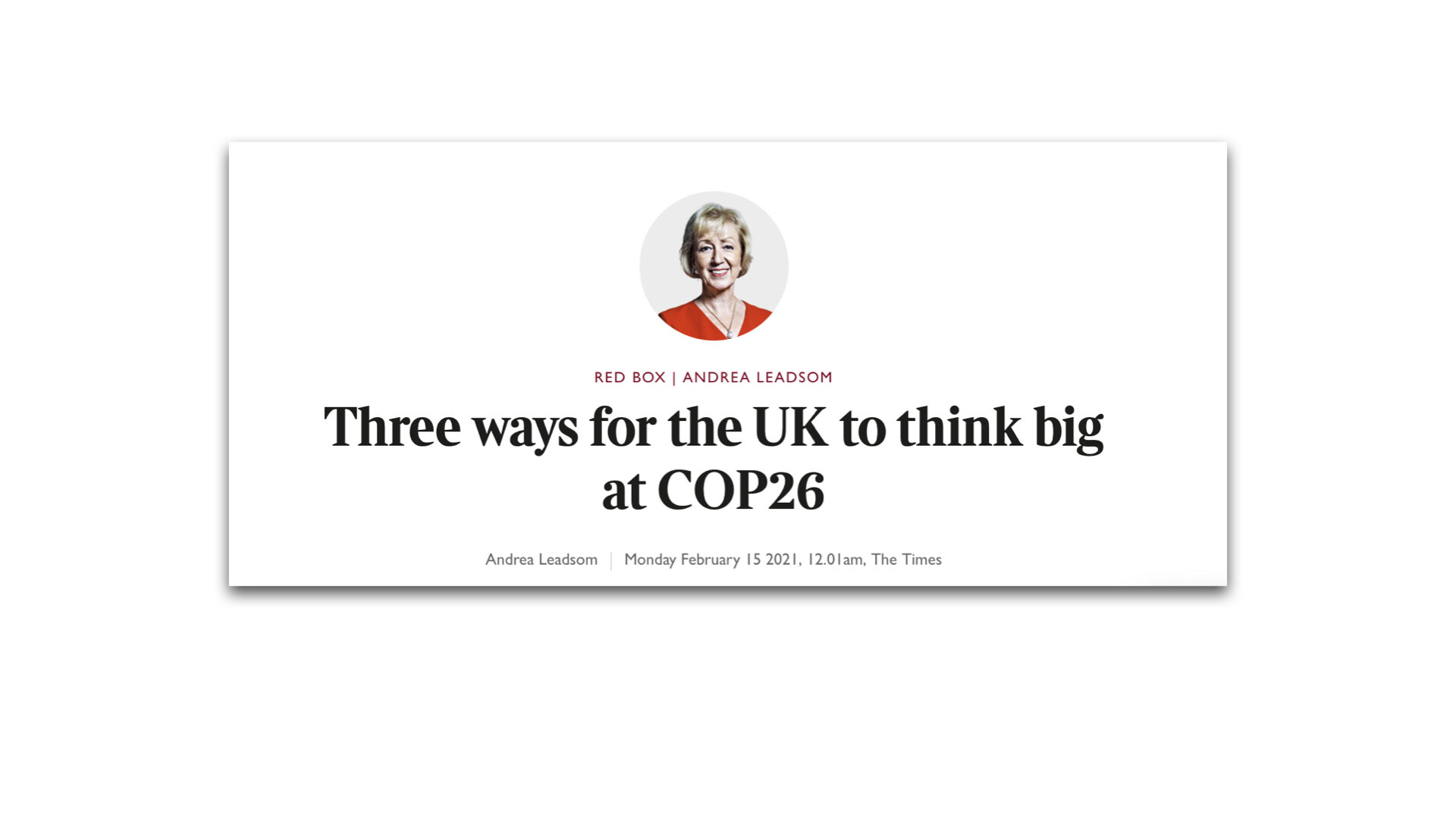We need to get to net zero at a price we can afford

Cop26 must deliver — and deliver results close to home. The current Net Zero debate has been focused on the future for gas boilers, petrol pump shortages and rising energy prices, and understandably so.
But we will need to be thinking much bigger at Cop26, and making the positive case for decarbonisation to all our citizens.
Cop26 cannot and must not be a two week talking shop. Unlike most of the annual Cop fests since Paris in 2015, Glasgow must produce a clear roadmap, laying out real, hard, deliverable commitments that can get us to a net zero world at a price we can afford.
The conference must deliver radical action and ambitious, world-changing initiatives that will guide us on the path to save our planet, as well as save our energy costs.
Three big ideas could make a real difference, demonstrating global commitment to action, whilst at the same time helping individuals to take more control of their own energy bills as well as their own carbon footprint.
Firstly, Cop26 could agree to set up a global carbon offset kitemark, when we book the next, very welcome flight to sunnier climes, do most of us really consider how the carbon that is created to transport us there is offset?
I suspect we take for granted that the airline must have it in hand. The opportunity to exploit “carbon fees” on a flight is very real, and I fear that “greenwashing” of a company’s eco credentials could be the next big scam waiting to happen.
A properly audited, verified and accountable carbon offset body with a globally respected kitemark would provide reassurance that the impact of carbon on the environment is regulated.
Consumers would be able to choose an airline, train or bus company that is committed to helping the planet, with businesses able to publish their offsetting performance, as a clear marketing advantage; or if there is none available, the individual consumer can choose, if they want, to offset their own carbon with confidence.
or the many who worry about climate change and want to do more in their own lives, instead of glueing themselves to a road or a train, a carbon offset kitemark offers a route to real direct action, and who better than Mark Carney, formerly the Bank of England’s governor, and now the prime minister’s finance adviser for Cop26, to lead such a global organisation?
Second, the UK should use its global influence and its presidency of Cop to broker ambitious bilateral decarbonisation commitments with the world’s biggest emitters.
It could pursue bilateral deals with countries such as India, China and Brazil, with India to deliver 100GW of battery storage across the world by 2030; with China to build 200GW of offshore wind to support developing nations, and with Brazil to plant 500 million hectares of new woodland in sensitive climates by 2030.
Setting ambitious deadlines and agreeing big targets can demonstrate real commitment as well as delivering jobs and growth at home and abroad.
The future of our planet is a popular topic in my inbox. It’s the top thing children and young people ask me about. So the third initiative I want to see at Cop26 is the launch of a new “decarbonise my life” scheme.
It was something I was keen to see the Department for Business, Energy and Industrial Strategy develop, a means for all our citizens to check their own carbon footprint and receive digital advice on how to reduce it, and at the same time cut their own energy costs.
The will to do it is already there, and the recent surge in energy prices should demonstrate to all of us that doing the same thing we’ve always done is not just bad for the planet but is also bad for our cost of living.
The time to act really is now, when there is so much focus on the international price of gas and the harm it is doing to those already in fuel poverty. Opportunities like this don’t happen very often, Cop26 needs to be as far reaching and life changing as was Cop in Paris in 2015.





